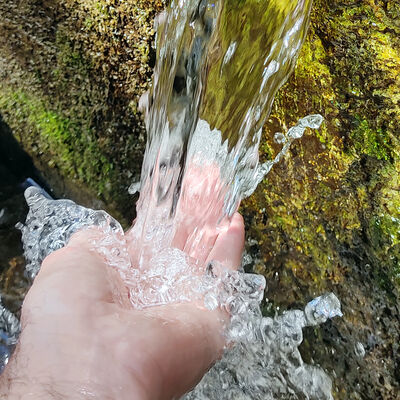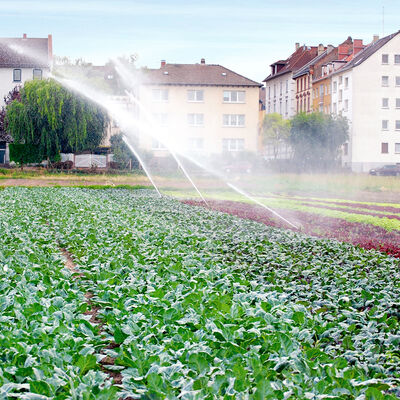Drinking water and recycled water
Where does the water come from in the RhineMain region?
Drinking water for the FrankfurtRhineMain region is mainly provided from groundwater resources in the Hessisches Ried and Vogelsberg areas. Some rural areas are able to rely on local resources. Many water utilities are organized in supra-local or supra-regional associations in order secure the water supply for large cities as well.
Climate change alters precipitation
The effects of climate change drastically influence our future lives. While the increasing average temperature is well predictable, the effects on the water cycle are more difficult to foresee.
Currently, no trend for a change in annual average precipitation can be recognized. However, precipitation rates shift from summer to winter. Larger amounts of precipitation are expected during winter, while the summers will become drier. This directly influences the runoff regime of water bodies and threatens the supply from springs during dry periods.
Increasing groundwater fluctuations
According to current knowledge, in Germany groundwater recharge is not declining in general. However, less precipitation and increased water use during summer may lead to greater fluctuations in groundwater levels throughout the year. Current groundwater levels in Hesse can be obtained from the Hessian State Office for Nature Conservation, Environment and Geology.
Increasing use of water
As a result of higher temperatures and longer droughts, water use is increasing, especially in the summer months. According to the Rhine-Main water balance of the Darmstadt Regional Council, water use in 2018 was around 5 percent higher than the previous year. This was mainly due to the long-lasting drought in 2018. Only about 0.5 percent of the increase in water demand is caused by population growth. Therefore, strategies for a water supply adapted to climate change must be developed.
Municipal water concepts
The mission statement for integrated water resource management of the Hessian Ministry for the Environment, Climate Protection, Agriculture and Consumer Protection provides the framework for a sustainable and future-proof water management in Hesse. If necessary, municipalities develop municipal water concepts to establish measures for a long-term and secure public water supply. A concept on municipal level is required if:
- water supply is not secured in the long term, or
- the municipality deviates from essential principles of the water management law.
The municipal water concepts should systematically document local conditions. Identifying potentials and risks helps to develop suitable measures. The contents should be adapted to the individual situation of the municipality. Topics for example are:
- Municipal territory, organization of water supply, legal framework
- Water resources and water supply
- Water demand and water use
- Water balance
- Expected demand of drinking water and potential savings
- Catalogue of measures and conditions for implementation



